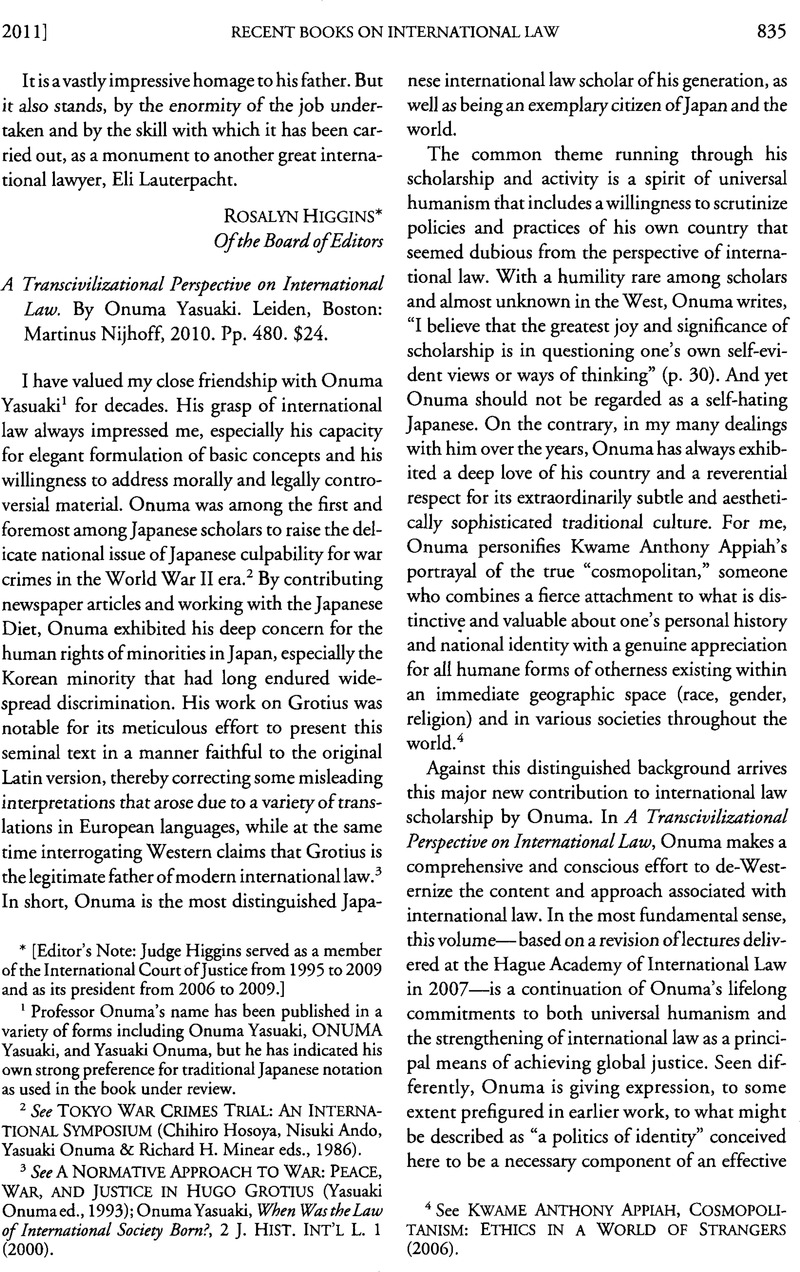No CrossRef data available.
Article contents
A Transcivilizational Perspective on International Law. By Onuma Yasuaki. Leiden, Boston: Martinus Nijhoff, 2010. Pp. 480. $24.
Published online by Cambridge University Press: 02 March 2017
Abstract

- Type
- Recent Books on International Law
- Information
- Copyright
- Copyright © American Society of International Law 2011
References
1 Professor Onuma’s name has been published in a variety of forms including Onuma Yasuaki, Onuma Yasuaki, and Yasuaki Onuma, but he has indicated his own strong preference for traditional Japanese notation as used in the book under review.
2 See Tokyo War Crimes Trial: an International Symposium (Chihiro Hosoya, Nisuki Ando, Yasuaki Onuma & Richard H. Minear eds., 1986).
3 See A Normative Approach TO War: Peace, War, AND Justice IN Hugo Grotius (Yasuaki Onuma ed., 1993); Yasuaki, Onuma, When WastheLaw of International Society Born?, 2 J. Hist. Int’l L. 1 (2000)Google Scholar.
4 See Appiah, Kwame Anthony, Cosmopolitanism: Ethics in A World of Strangers (2006)Google Scholar.
5 For such a frontal attack, see Anghie, Antony, Imperialism, Sovereignty and the Making of International Law (2005)Google Scholar.
6 Prior to World War II, international law either incorporated the West-centric hierarchy of world order
7 Onuma’s work on international law is a strong confirmation of Edward Said’s broader cultural critique of the projection of Western ideas, values, and stereotyped renderings of the other in his influential work. See particularly Edward W. Said, Orientalism (1979).
8 This realist tradition that has dominated the international relations tradition was most clearly evident in Hedley Bull, the Anarchical Society: A Study of Order in World Politics (1977).
9 For an elegant exposition of this thesis, see John Ikenberry, G., Liberal Leviathan: The Origins, Crisis, and Transformation of the American World Order (2011)Google Scholar.
10 E.g., International Incidents: the Law That Counts IN World Politics (W. Michael Reisman & Andrew R. Willard eds., 1988).


